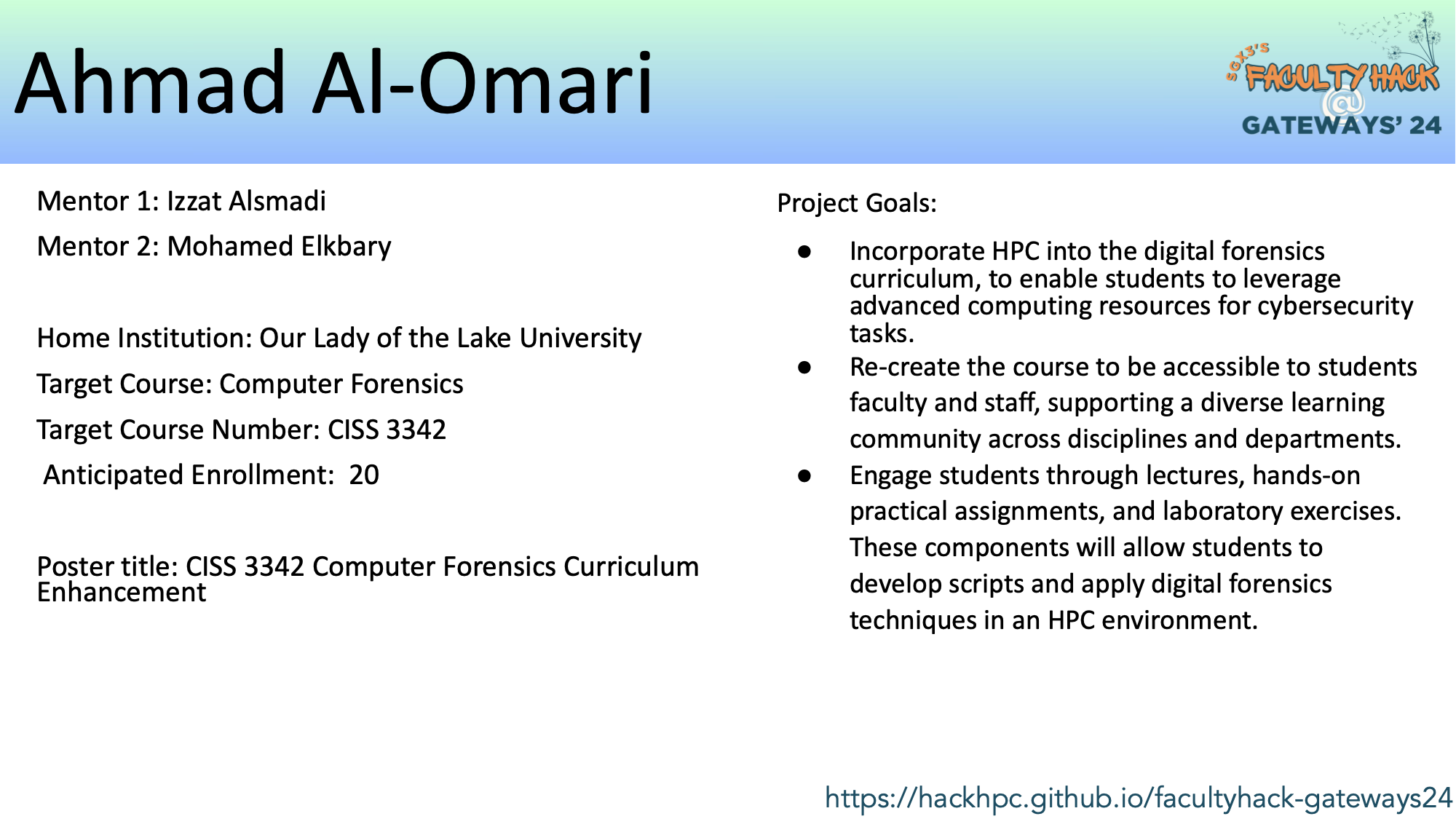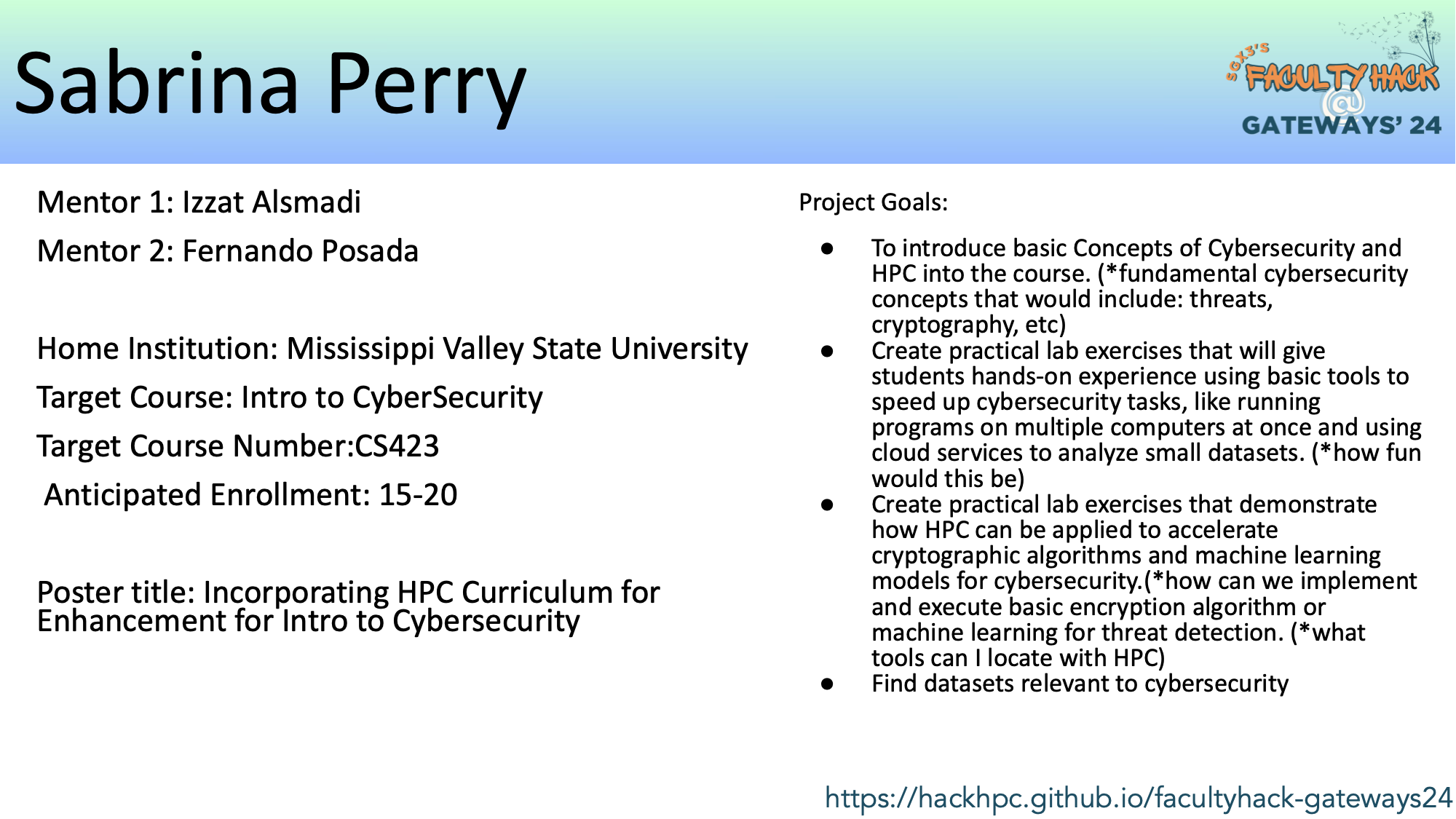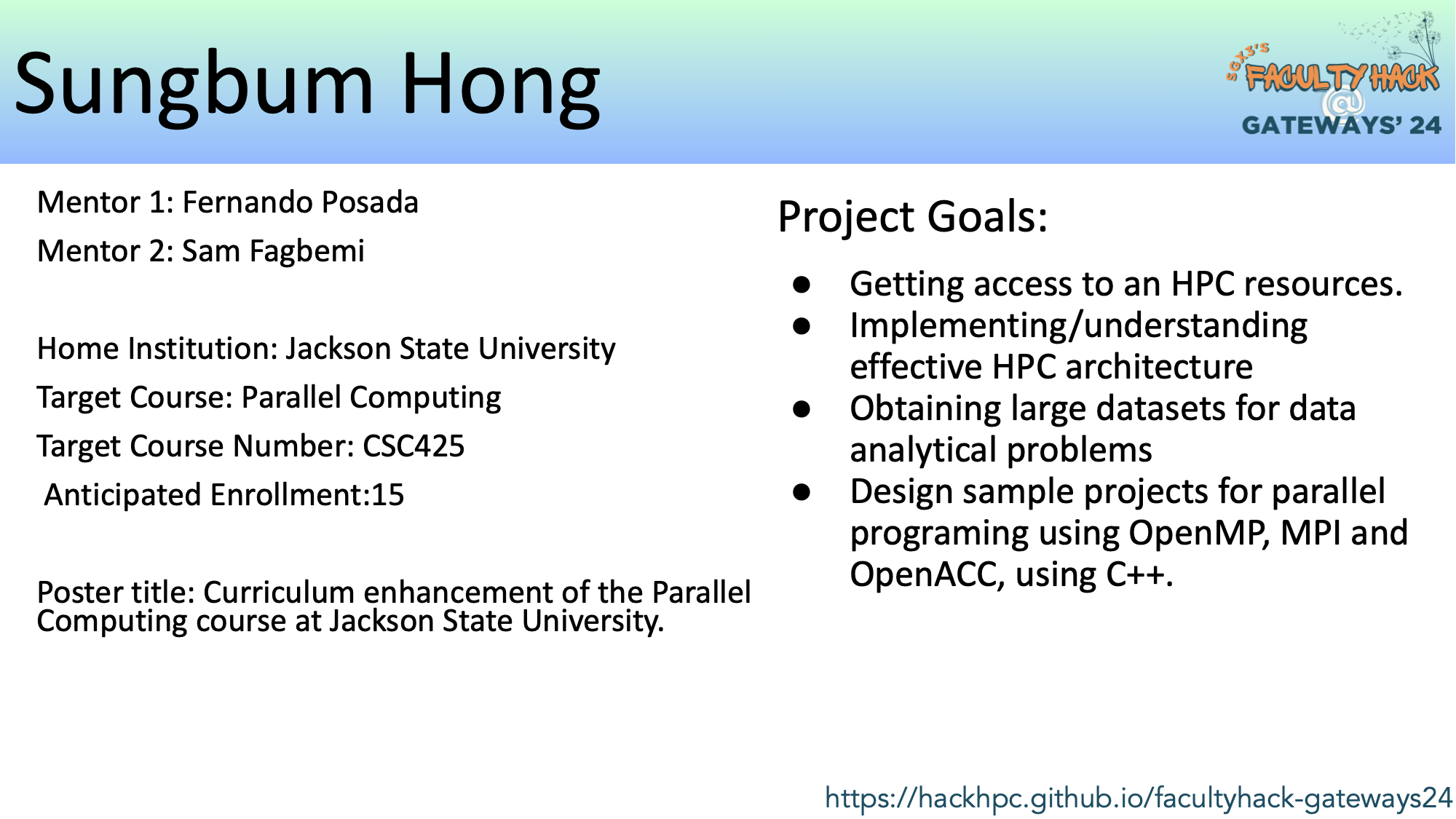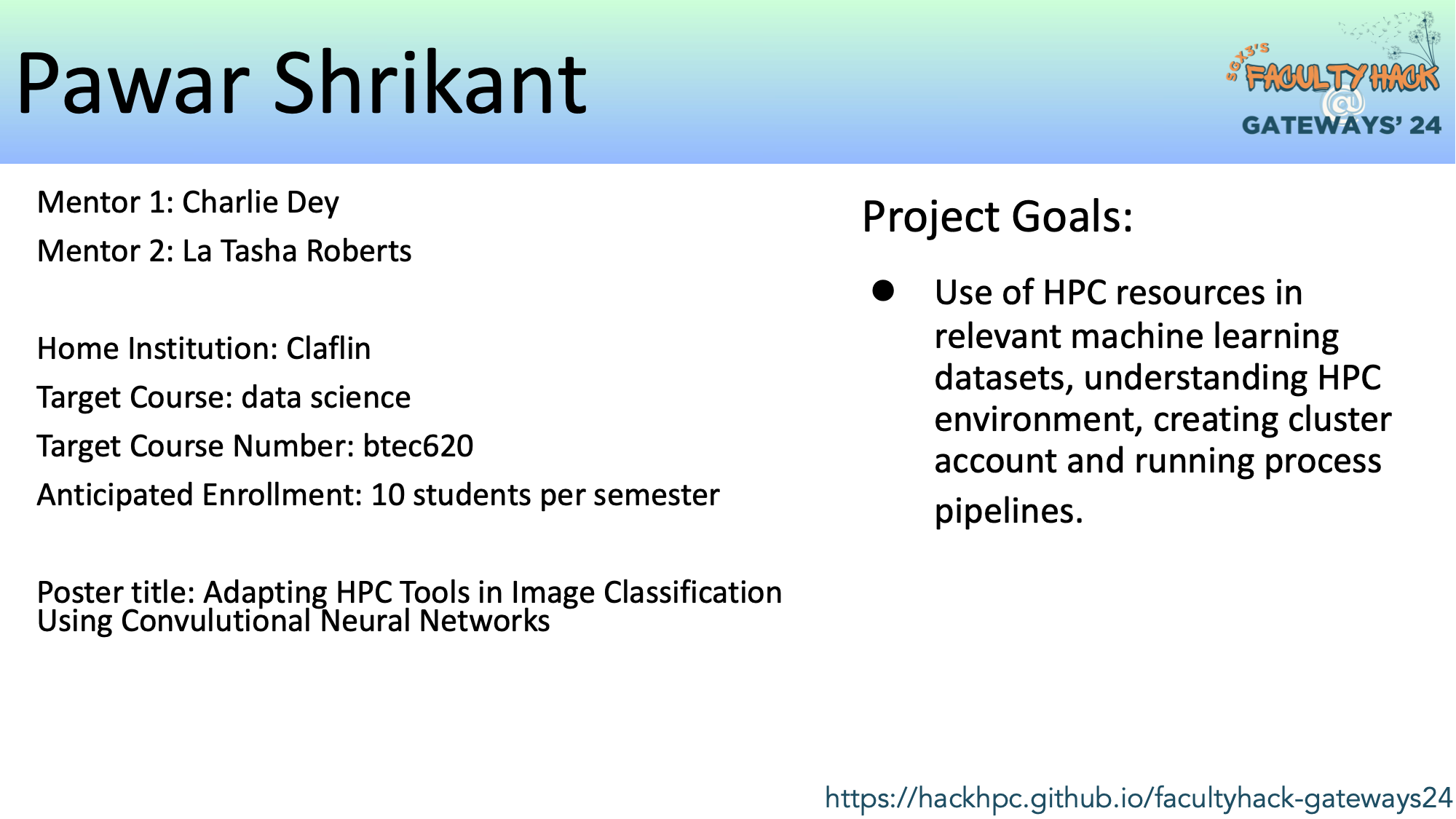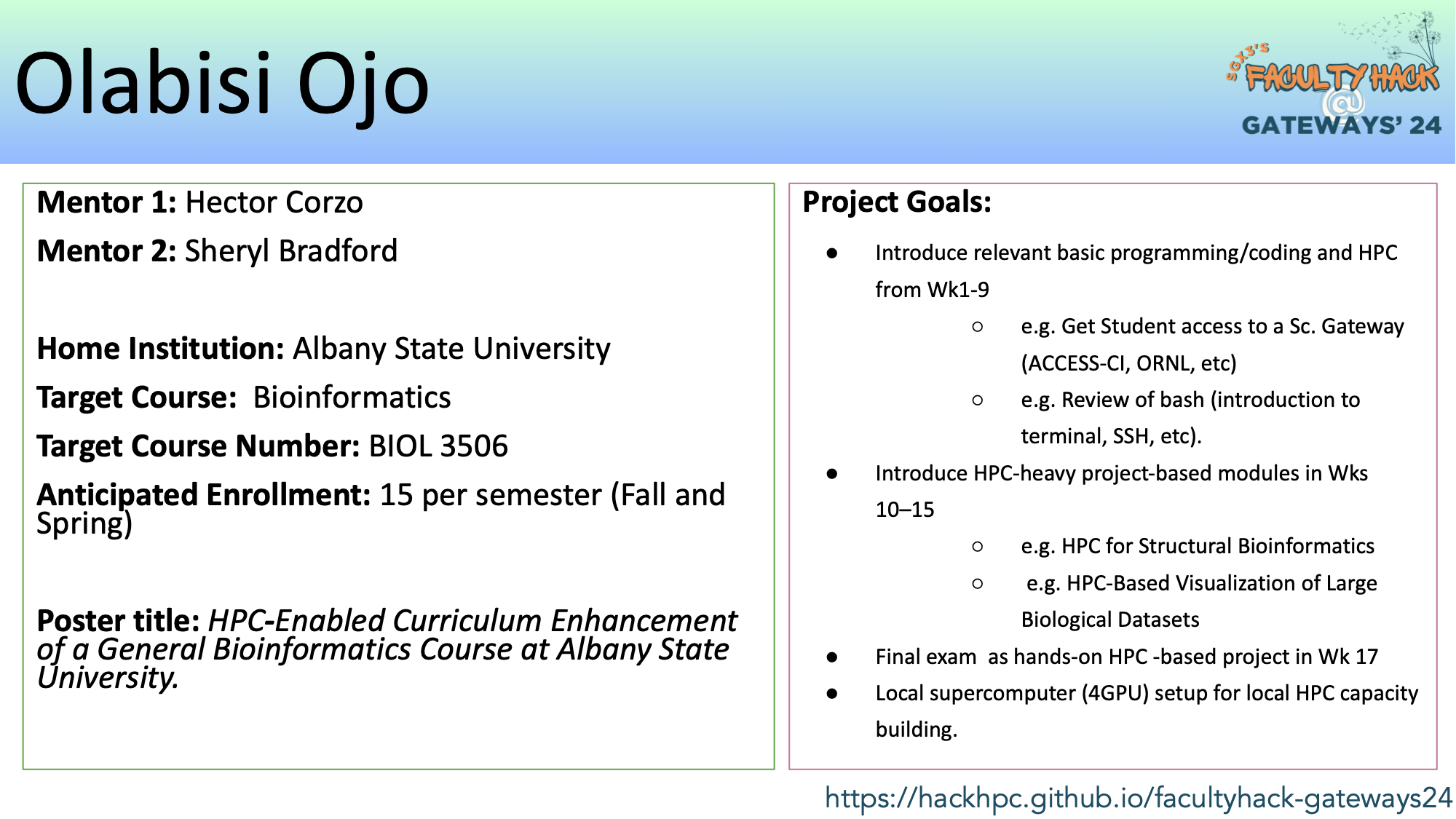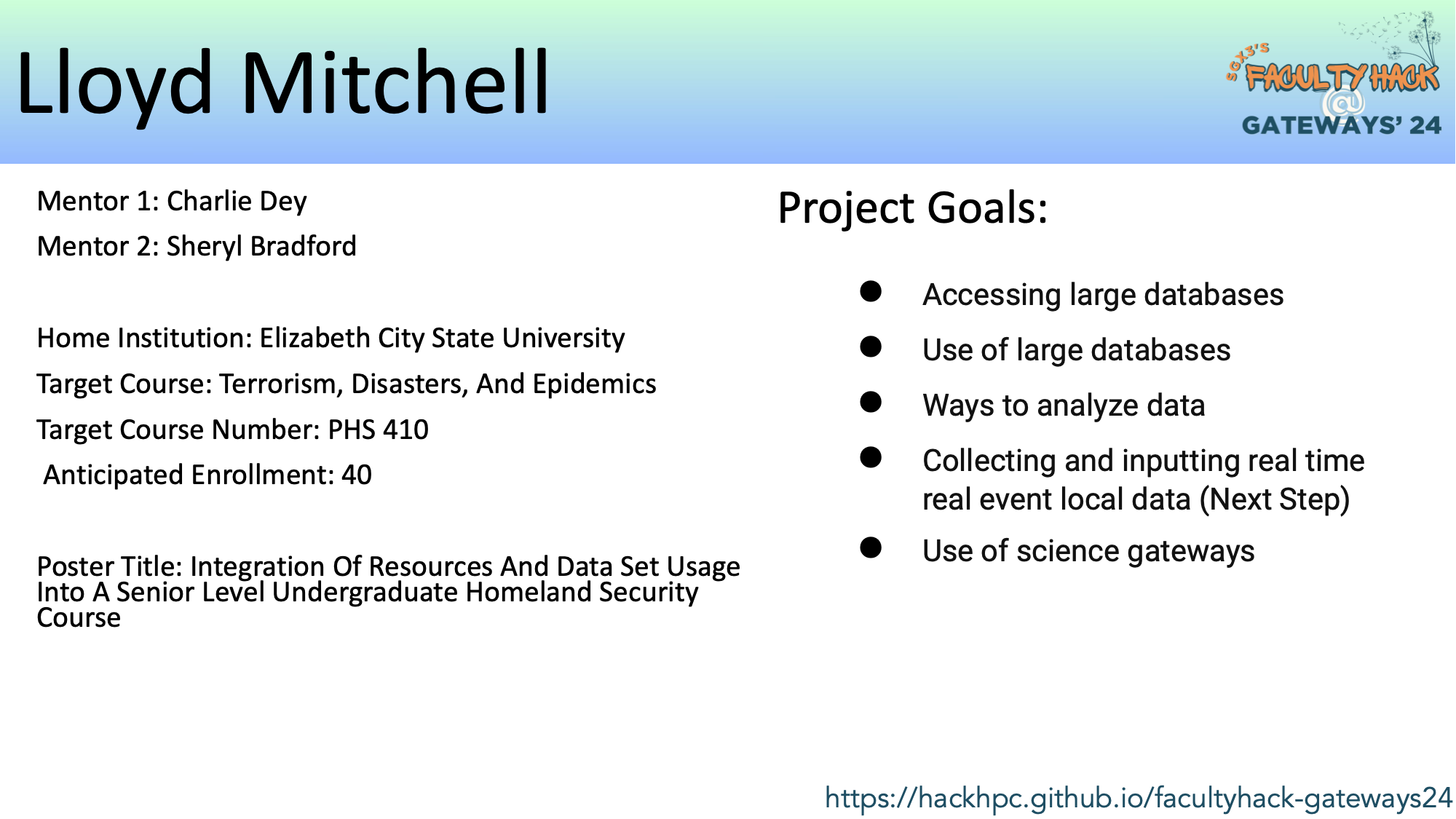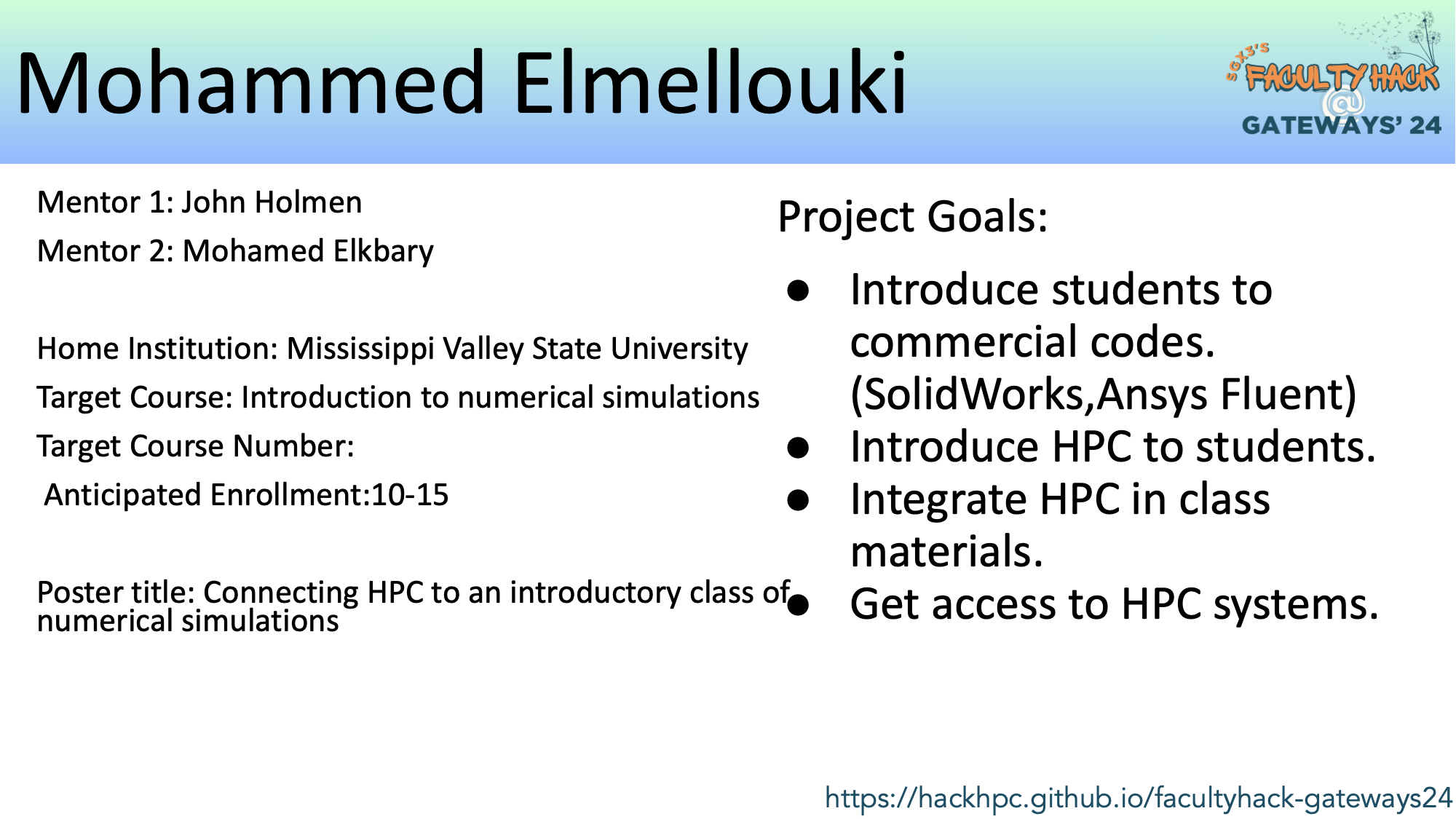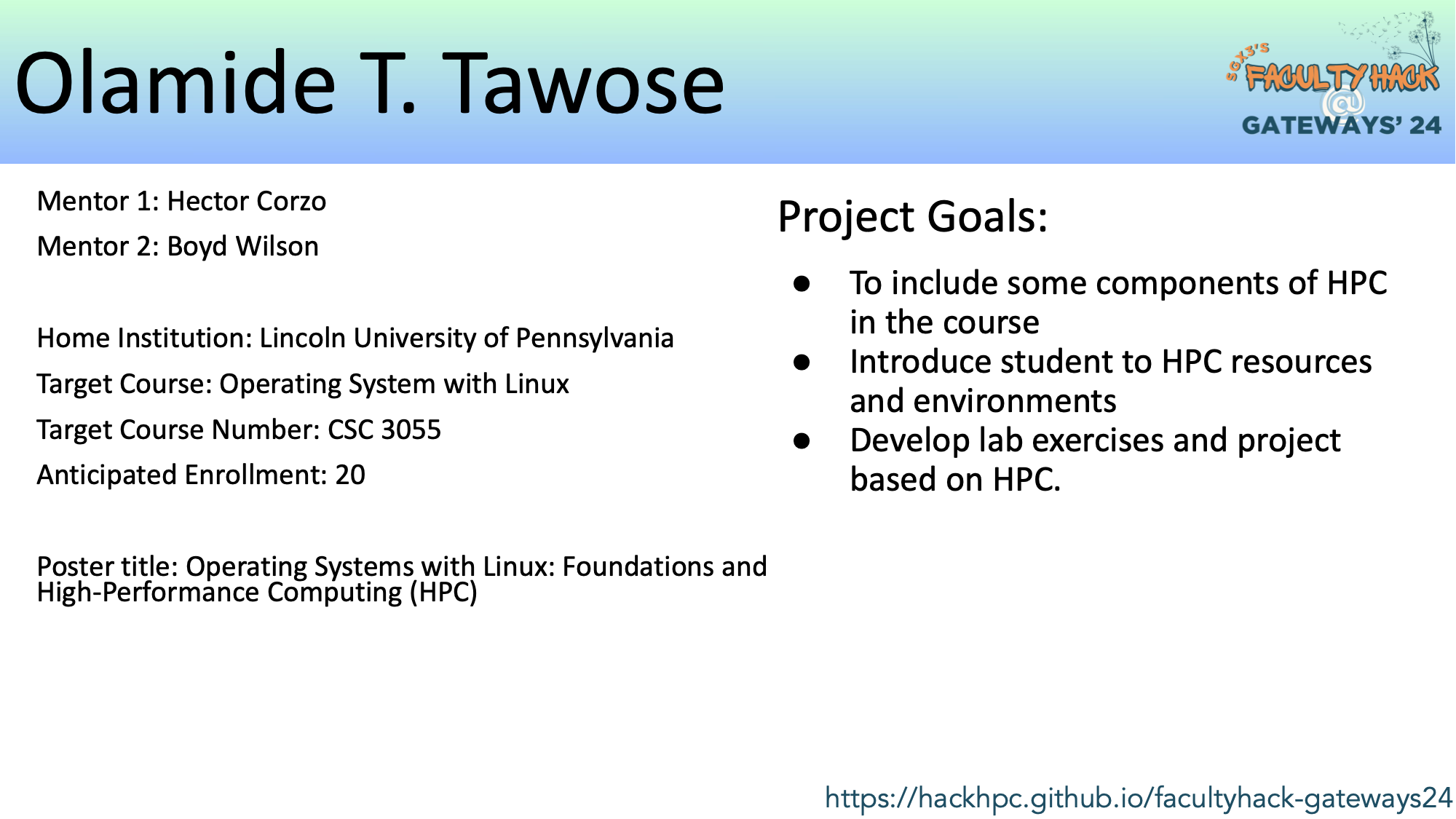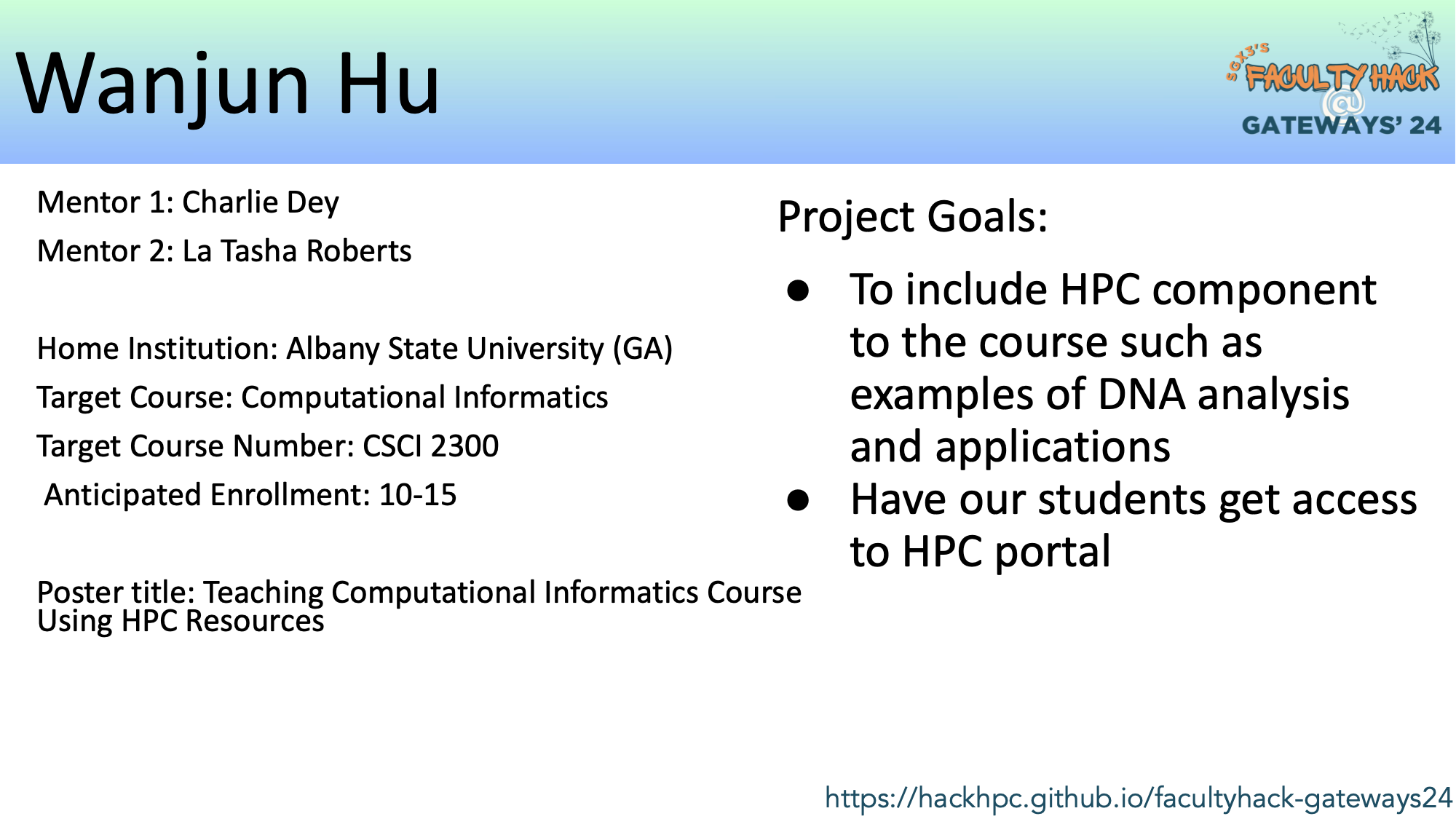CISS 3342 Computer Forensics
Course Description: Overview of methods and tools utilized for collecting, processing, analyzing, presenting and preserving electronic digital evidence in support of network vulnerability mitigation and/or criminal, fraud, counterintelligence, or law enforcement investigations.
Project Goal(s):
- Incorporate HPC into the digital forensics curriculum, to enable students to leverage advanced computing resources for cybersecurity tasks.
- Re-create the course to be accessible to students faculty and staff, supporting a diverse learning community across disciplines and departments.
- Engage students through lectures, hands-on practical assignments, and laboratory exercises. These components will allow students to develop scripts and apply digital forensics techniques in an HPC environment.
Faculty Member:
- Ahmad Al-Omari
Computer Information Systems and Security
Our Lady of the Lake University
Mentors:
- Izzat Alsmadi
Texas A&M, San Antonio
- Mohamed Elbakary
Elizabeth City State University
CS423 Survey of Computer Science
Course Description: Introduction to computer Sciences as discipline, including theory of computation, programming languages and their structure, computer architecture, operating systems and networks, and social, ethical, and professional issues; use of application software (word processing, spreadsheet, database, etc.) and Internet; introduction to programming in a modern object-oriented programming language.
Project Goal(s):
- To introduce basic Concepts of Cybersecurity and HPC into the course. (*fundamental cybersecurity concepts that would include: threats, cryptography, etc)
- Create practical lab exercises that will give students hands-on experience using basic tools to speed up cybersecurity tasks, like running programs on multiple computers at once and using cloud services to analyze small datasets. (*how fun would this be)
- Create practical lab exercises that demonstrate how HPC can be applied to accelerate cryptographic algorithms and machine learning models for cybersecurity.(*how can we implement and execute basic encryption algorithm or machine learning for threat detection. (*what tools can I locate with HPC)
- Find datasets relevant to cybersecurity
Faculty Member:
- Sabrina Perry
Engineering Technology
Mississippi Valley State University
Mentors:
- Izzat Alsmadi
Texas A&M, San Antonio
- Fernando Posada
Oak Ridge National Laboratory
CSC551 Parallel and Distributed Computing
Course Description: CSC 551 Parallel and Distributed Computing (3 hrs): Prerequisite: CSC 512 Computer Architecture or approval of Department. The course introduces the concepts and design of parallel and distributed computing systems. Topics covered include: Data versus control parallelism (SIMD/Vector, Pipelines, MIMD, Multi-core, GPU); Shared versus distributed memory (SMP and NUMA), Message passing Interface (MPI) and Topologies; Parallel and distributed algorithms: Paradigms, Models and Complexity, Scheduling, Synchronization, Deadlock detection, Fault tolerance and Load balancing.
Project Goal(s):
- Getting access to an HPC resources.
- Implementing/understanding effective HPC architecture
- Obtaining large datasets for data analytical problems
- Design sample projects for parallel programing using OpenMP, MPI and OpenACC, using C++.
Faculty Member:
- Sungbum Hong
Department of Electrical & Computer Engineering and Computer Science
Jackson State University
Mentors:
- Fernando Posada
Oak Ridge National Laboratory
- Sam Fagbemi
Oak Ridge National Laboratory
BTEC620 Data Science
Project Goal(s):
- Use of HPC resources in relevant machine learning datasets, understanding HPC environment, creating cluster account and running process pipelines.
Faculty Member:
- Shrikant Pawar
Computer Science
Claflin University
Mentors:
- Charlie Dey
Texas Advanced Computing Center
- LaTasha Roberts
Austin Community College
BIOL3506 Bioinformatics
Course Description: BIOL 3506 introduces the use of computational tools to analyse and interpret biological data, focusing on large datasets like genomic sequences. Students will learn to apply algorithms for sequence alignment and gene prediction, utilizing bioinformatics software and databases. The course prepares students for research in genomics and other aspects such as personalized medicine through hands-on projects and case studies.
Project Goal(s):
- Introduce relevant basic programming/coding and HPC from Wk1-9
- e.g. Get Student access to a Sc. Gateway (ACCESS-CI, ORNL, etc)
- e.g. Review of bash (introduction to terminal, SSH, etc).
- Introduce HPC-heavy project-based modules in Wks 10–15
- e.g. HPC for Structural Bioinformatics ○ e.g. HPC-Based Visualization of Large Biological Datasets
- Final exam as hands-on HPC -based project in Wk 17
- Local supercomputer (4GPU) setup for local HPC capacity building.
Faculty Member:
- Olabisi Ojo
Natural Sciences
Albany State University
Mentors:
- Hector Corzo
Oak Ridge National Laboratory
- Sheryl Bradford
Elizabeth City State University
PHS410 Terrorism, Disasters, and Epidemics
Course Description: Explores bioterrorism, disasters, epidemics and related topics via: direct experiences, analysis using predictive tools accessing available data, use of historical data, and integration of cultural knowledge components. Study, research, and productive communications with diverse or unfamiliar communities are required.
Project Goal(s):
- Accessing large databases
- Use of large databases
- Ways to analyze data
- Collecting and inputting real time real event local data (Next Step)
- Use of science gateways
Faculty Member:
- Lloyd Mitchell
Health And Human Studies
Elizabeth City State University
Mentors:
- Charlie Dey
Texas Advanced Computing Center
- Sheryl Bradford
Elizabeth City State University
Introduction to Computational Fluid Dynamics
Course Description: The class will cover the basics of fluid mechanics and heat transfer, how to use numerical methods to solve fluid dynamics equations. it would cover mesh generation and mesh decomposition, performance optimization techniques and visualization and analysis of large scale CFD results. the projects will be based on real world engineering problems.
Project Goal(s):
- Introduce students to commercial codes. (SolidWorks,Ansys Fluent)
- Introduce HPC to students.
- Integrate HPC in class materials.
- Get access to HPC systems.
Faculty Member:
- Mohammed Elmellouki
Engineering Technology
Mississippi Valley State University
Mentors:
- John Holmen
Oak Ridge National Laboratory
- Mohamed Elbakary
Elizabeth City State University
CSC3055 Operating Systems with Linux
Course Description: This course introduces students to the principles and concepts of modern operating systems design, discusses major issues of importance in the design, and shows how operating systems have implemented the design ideas. Topics include process management, CPU scheduling, memory, and storage management. In addition, this course will specifically introduce students to the Linux operating system, its commands and programming features.
Project Goal(s):
- To include some components of HPC in the course
- Introduce student to HPC resources and environments
- Develop lab exercises and project based on HPC.
Faculty Member:
- Olamide Tawose
Computer Science
Lincoln University of Pennsylvania
Mentors:
- Hector Corzo
Oak Ridge National Laboratory
- Boyd Wilson
Omnibond
CSCI-2300 Computational Informatics I
Course Description: CreateThis course offers an introduction to computational informatics science of how information is representedand transmitted in biological systems. Students will learn Biological Technical Scenes, Patterns andDownloading Datasets (Protein Databanks, SWISS-PROT, EMBL and GenBank), Database Management(Pharmacogenomics and Aggression), Search Engines Algorithms (Intelligent Agents and User InterfaceTools Programming with PERL Database), Data Mining (Statistics and Sampling), Web Technologies(Internet Sequence Retrieval System) and Data Visualization (Animation and Visualization Tools
Project Goal(s):
- To include HPC component to the course such as examples of DNA analysis and applications
- Have our students get access to HPC portal
Faculty Member:
- Wanjun Hu
Computer Science and Computational Informatics
Albany State University
Mentors:
- Charlie Dey
Texas Advanced Computing Center
- LaTasha Roberts
Austin Community College

